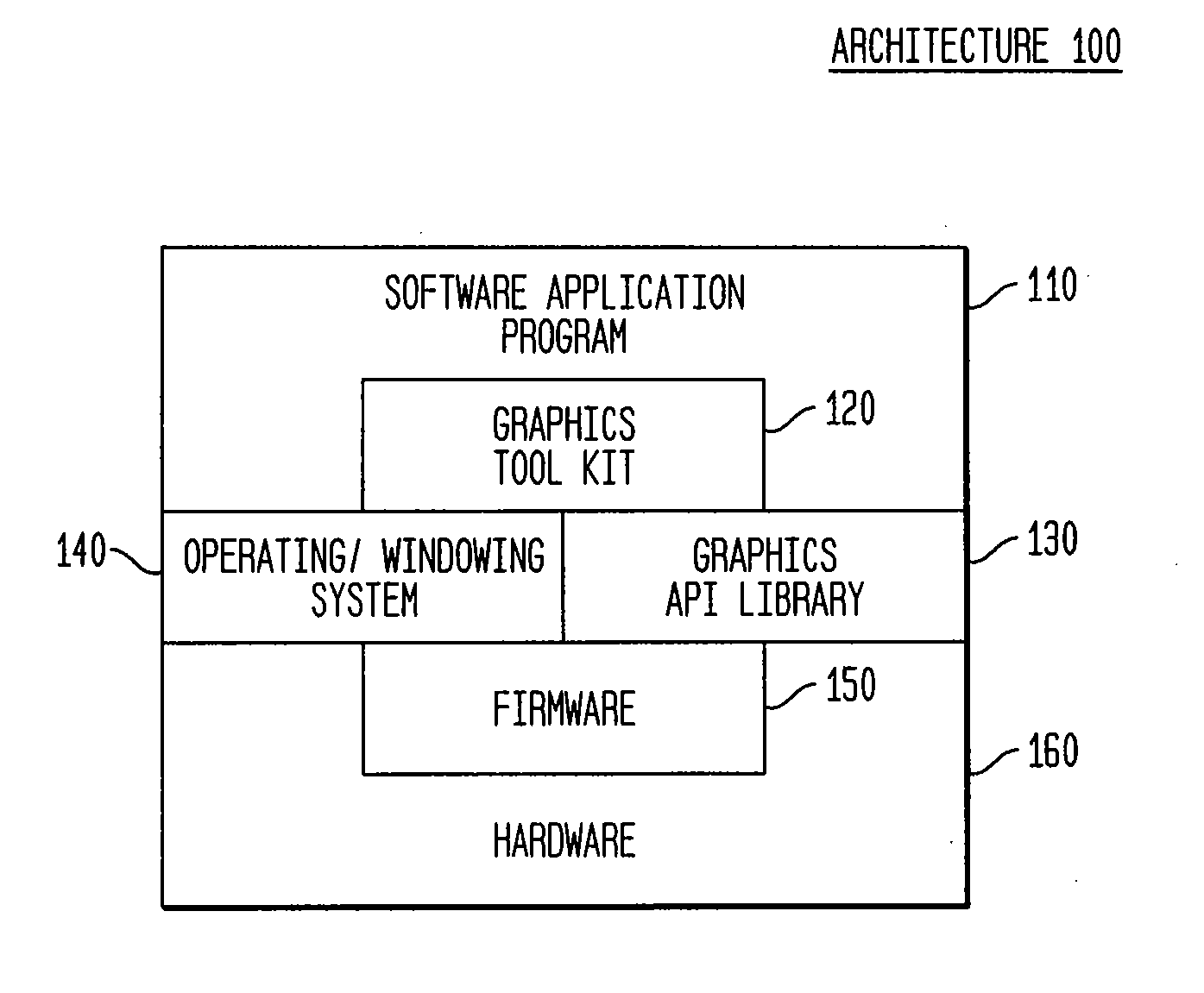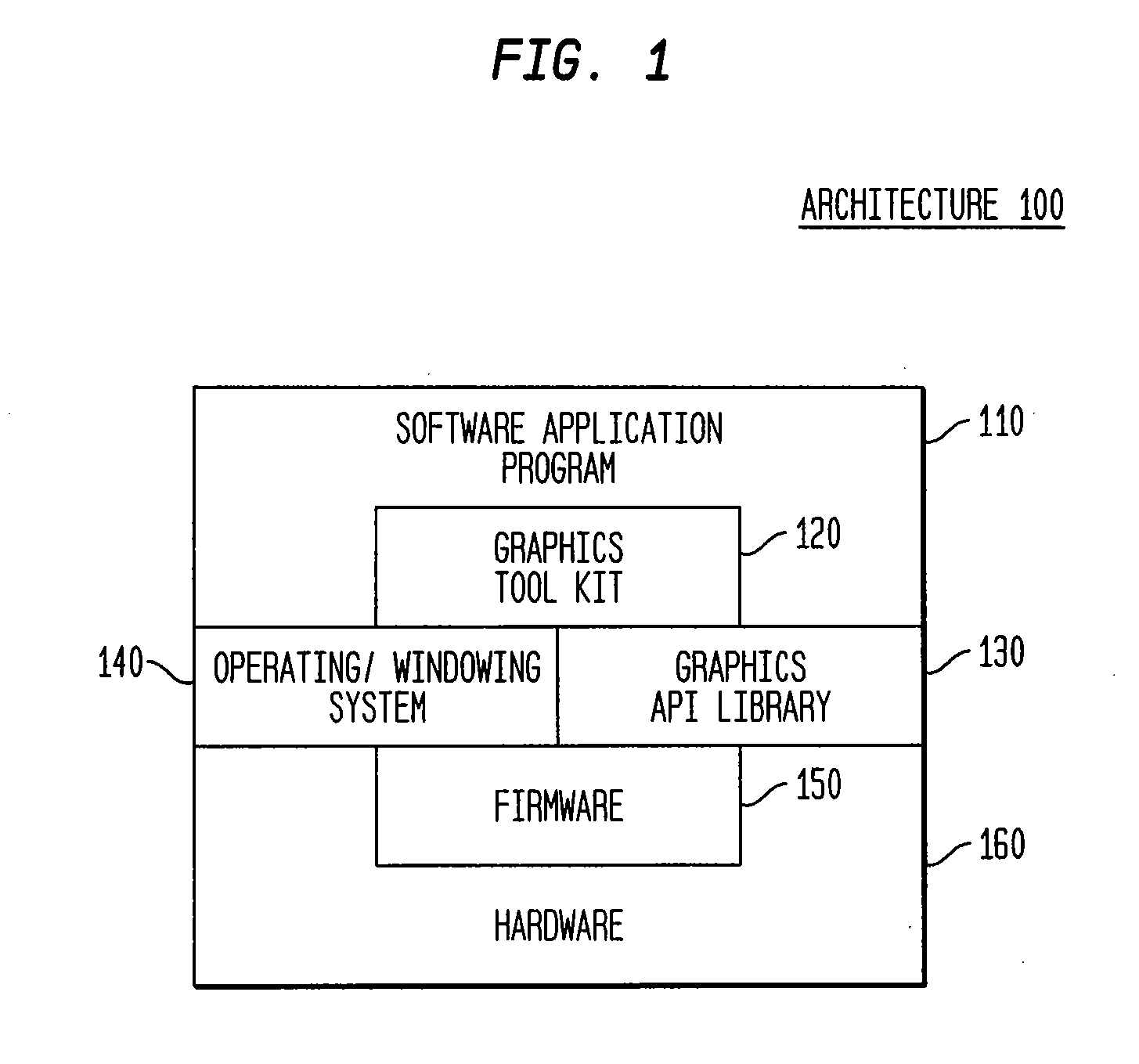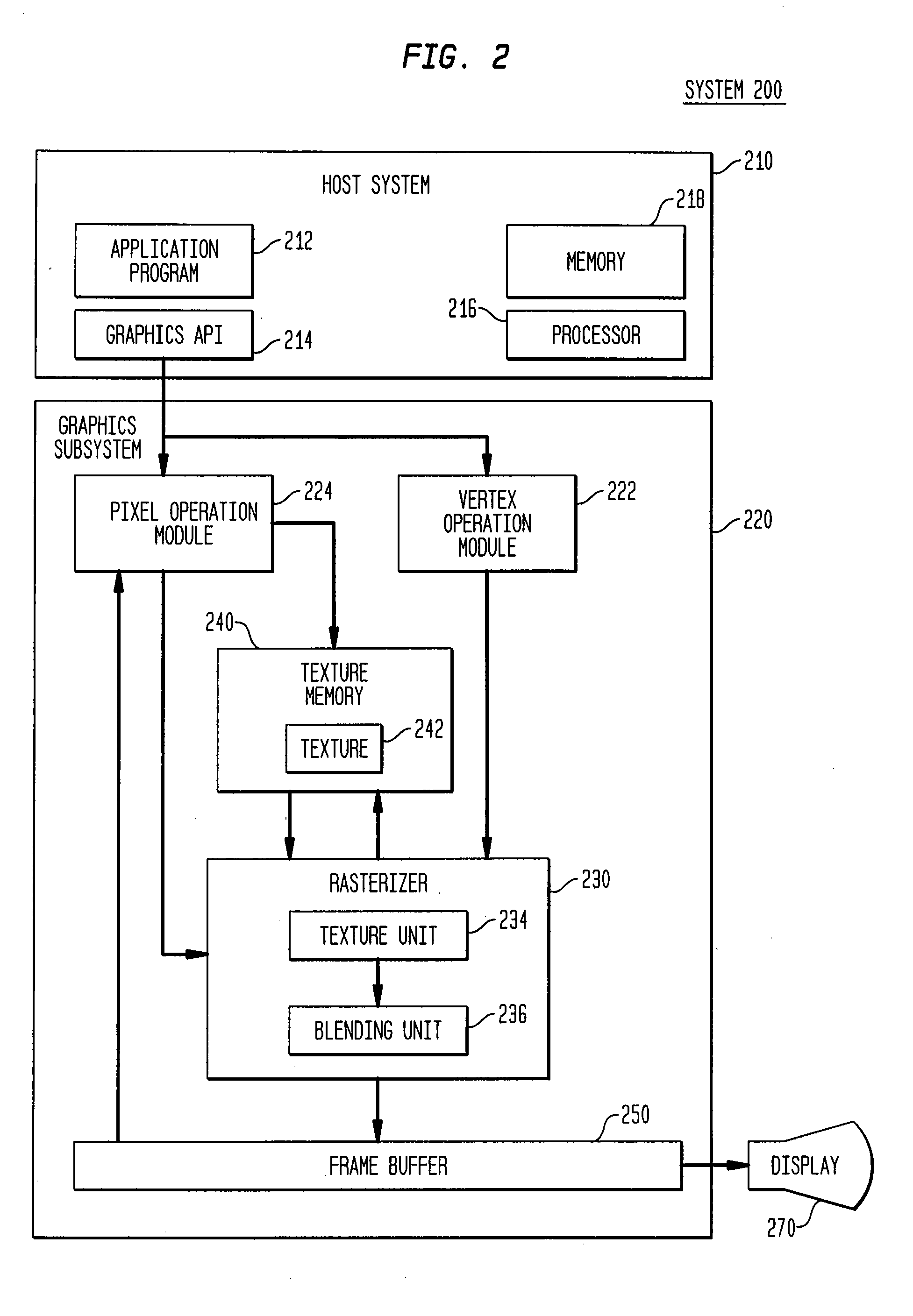System and Method for Image-Based Rendering with Object Proxies
a technology of object proxies and image-based rendering, applied in the field of computer graphics, can solve the problems of increasing the number of calculations and other processing work required to fully render the object, affecting the quality of the object, and speed and cost, and achieve the effect of achieving the intermediate level of rendering quality
- Summary
- Abstract
- Description
- Claims
- Application Information
AI Technical Summary
Benefits of technology
Problems solved by technology
Method used
Image
Examples
example system embodiment
of the Present Invention
[0055]FIG. 2 illustrates an example graphics system 200 according to an embodiment of the present invention. Graphics system 200 comprises a host system 210, a graphics subsystem 220, and a display 270. Each of these features of graphics system 200 is further described below.
[0056]Host system 210 comprises an application program 212, a hardware interface or graphics API 214, a processor 216, and a memory 218. Application program 212 can be any program requiring the rendering of a computer image. The computer code of application program 212 is executed by processor 216. Application program 212 assesses the features of graphics subsystem 220 and display 270 through hardware interface or graphics API 214. Memory 218 stores information used by application program 212.
[0057]Graphics subsystem 220 comprises a vertex operation module 222, a pixel operation module 224, a rasterizer 230, a texture memory 240, and a frame buffer 250. Texture memory 240 can store one or...
example method embodiments
of the Present Invention
[0060]FIG. 3A illustrates a flowchart of a method 300 for image-based rendering with object proxies according to an embodiment of the invention. As noted above, an object proxy is a simplification of an object boundary that is useful for hardware-accelerated image-based rendering. Image-based rendering with object proxies according to the present invention makes it possible both to render more image-based objects in a single computer generated scene and to render these image-based objects using fewer views / textures than conventional image-based rendering schemes.
[0061]In an embodiment, method 300 operates as follows. A viewing direction for rendering an object is chosen. Next, at least two pre-computed view textures and a pre-computed object proxy associated with the chosen viewing direction are selected. Blending weights are assigned to each of the selected view textures. The object is then drawn to a buffer using the selected object proxy, the selected view...
PUM
 Login to View More
Login to View More Abstract
Description
Claims
Application Information
 Login to View More
Login to View More - R&D
- Intellectual Property
- Life Sciences
- Materials
- Tech Scout
- Unparalleled Data Quality
- Higher Quality Content
- 60% Fewer Hallucinations
Browse by: Latest US Patents, China's latest patents, Technical Efficacy Thesaurus, Application Domain, Technology Topic, Popular Technical Reports.
© 2025 PatSnap. All rights reserved.Legal|Privacy policy|Modern Slavery Act Transparency Statement|Sitemap|About US| Contact US: help@patsnap.com



